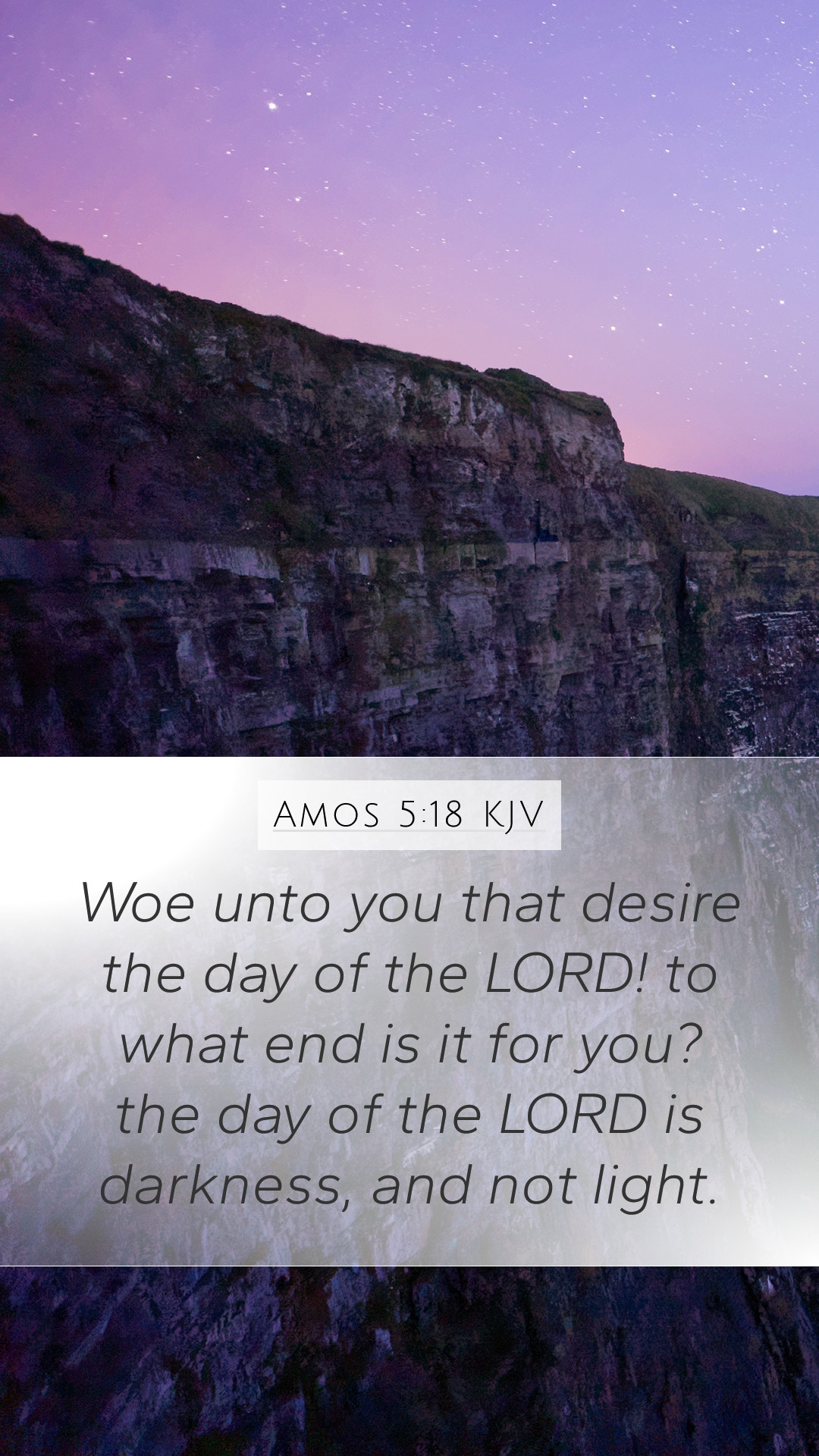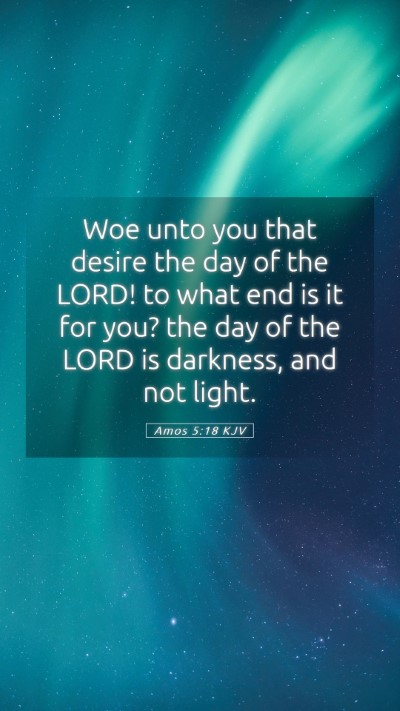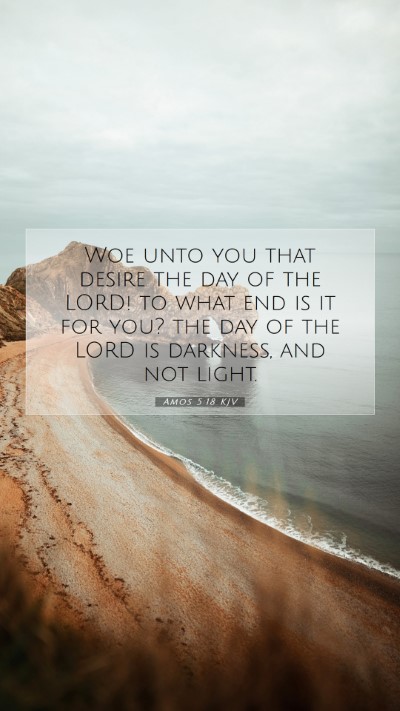Old Testament
Genesis Exodus Leviticus Numbers Deuteronomy Joshua Judges Ruth 1 Samuel 2 Samuel 1 Kings 2 Kings 1 Chronicles 2 Chronicles Ezra Nehemiah Esther Job Psalms Proverbs Ecclesiastes Song of Solomon Isaiah Jeremiah Lamentations Ezekiel Daniel Hosea Joel Amos Obadiah Jonah Micah Nahum Habakkuk Zephaniah Haggai Zechariah MalachiAmos 5:18 Meaning
What is the meaning of Amos 5:18?
Woe unto you that desire the day of the LORD! to what end is it for you? the day of the LORD is darkness, and not light.
Amos 5:18 Bible Verse Meaning
Understanding Amos 5:18
Amos 5:18 states: "Woe to you who long for the day of the Lord! Why do you long for the day of the Lord? That day will be darkness, not light." This verse encapsulates a profound message about the expectations and realities surrounding the day of the Lord, which is a central theme in the prophetic literature of the Bible.
Bible Verse Meaning
The verse speaks of a warning to those who eagerly anticipate the day of the Lord without understanding the implications of such a day. Public domain commentaries offer various insights that deepen our Bible verse understanding.
- Matthew Henry: Henry emphasizes the seriousness of longing for the day of the Lord, questioning the motives behind such anticipation. He suggests that many faced the impending judgment with a false sense of security, failing to recognize that this day would bring calamity for the unrepentant.
- Albert Barnes: Barnes underscores that the "day of the Lord" is often associated with divine judgment. He explains that it is a day of reckoning for those whose lives are marked by sin and injustice, and encourages readers to self-examine their lives in light of this prophetic warning.
- Adam Clarke: Clarke highlights the duality of the "day of the Lord," recognizing it as both a day of dread for the wicked and a day of salvation for the righteous. He points out that misunderstanding this day can lead to destruction, as it is not merely about punishment but also about the revealing of true justice.
Bible Verse Interpretations
The interpretations of this verse vary but reinforce the central theme of discernment regarding God's judgment.
- Legalistic Security: Many Israelites believed they were secure due to their heritage and rituals. This verse serves as a challenge to question that false confidence.
- Call to Repentance: The prophet urges for genuine repentance rather than superficial piety, emphasizing the need for moral integrity.
Scripture Analysis
Analyzing Amos 5:18 in its broader context reveals the depth of Israel's sins and the consequences that come with ignoring divine warnings. The prophet Amos serves not only to foretell doom but also to illuminate the path towards righteousness.
Biblical Exegesis
Biblical exegesis of this passage involves unpacking its historical and cultural context. The expectation of the 'day of the Lord' was steeped in Jewish eschatology, often misconstrued as merely a day of blessings rather than judgment.
Application of the Verse
This verse prompts modern readers to reflect on their spiritual state. What does it mean to long for the day of the Lord today? It forces us to consider whether we, like ancient Israel, may be misinterpreting God's promises of judgment and grace.
- Encourages self-examination of faith practices and motivations.
- Calls for a shift away from apathy towards proactive righteousness.
Bible Cross References
- Zephaniah 1:14-15: The imminent day of the Lord described as a day of wrath.
- Malachi 4:1: The day of the Lord will be burning like an oven for the wicked.
- Joel 2:31: The sun will be turned to darkness before the great and dreadful day of the Lord.
Conclusion
Amos 5:18 is a wake-up call that invites deeper reflection on our understanding of God’s justice. Through the insights of public domain commentaries, we gain a comprehensive view of the expectations for God's people. As we immerse ourselves in Bible study lessons and engage with this Scripture, we become better equipped to face the realities of our spiritual journeys.


